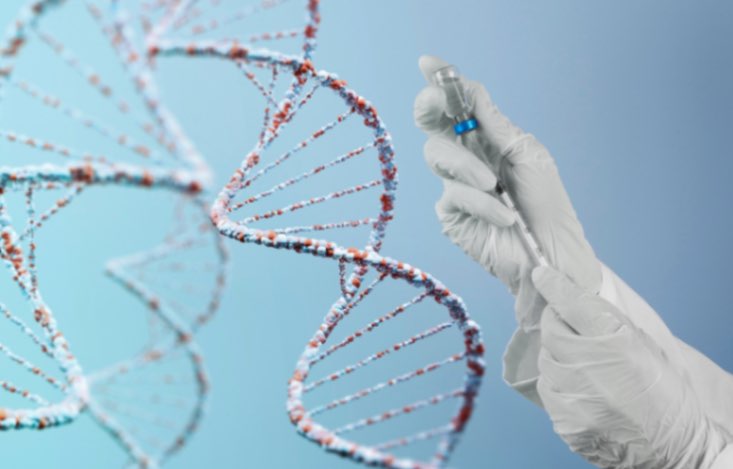We all know someone who has had Covid, maybe even more than once. We also know others who never get it even when living with a partner, child or roommate who has the virus.
Why do some people not come down with COVID even when living with someone who had symptoms and tested positive?
Many people, including medical experts, are wondering why.
The answer is – it’s complicated.
Almost 80% of the US population have been infected by the SARS-Cov-2 virus since the pandemic began in 2020, according to the CDC. Many variations in immunity response have been seen.
Genetics Vs. Environment
Two factors: genetics, and home environment have been the primary focus to explain variations of COVID transmission.
However, new evidence show that genetics may be a more powerful factor than previously thought.
A new study shows how the relationship between genetics and environment has switched since the pandemic began based on data from patients at New-York Presbyterian/Columbia University Irving Medical Center.
Early on, a person’s genetics accounted for about 33% of the variations seen in susceptibility but toward the end of the study, genetics’ role increased to 70%.
Genetics again trumped home environments when looking at the severity of COVID illness based on the number of days spent in the hospital.
“Since this is an infectious disease, we assumed that home environment differences would explain most variation for the entirety of the study,” said senior study author, Nicholas Tatonetti.
It’s not yet clear which DNA is driving the gap between who gets COVID-19 and who doesn’t. Finding out “is very important in terms of directing resources and defining future research goals,” further states Tatonetti.
Super Dodgers
University of California at San Francisco, conducted another study that identified a gene variation that helps people, become “super dodgers,” who contract COVID-19 but never develop symptoms. This gene mutation can help people wipe out the virus and avoid getting sick.
“It’s like having soldiers that are prepared for battle and already know what to look for, and that these are the bad guys,” explained the study’s lead researcher, Jill Hollenbach, Ph.D., MPH, professor of neurology, as well as epidemiology and biostatistics, and a member of the Weill Institute for Neurosciences at UCSF.
Research priorities for COVID
According to the National Institute of Health, research is focused on developing tests, treatments, and vaccines that will detect, treat and hopefully prevent the disease, as well as support communities that have been hardest hit by COVID-19 in the past.
Although the role of genetics and environment is still not well understood, the research community will continue to look for new insight and solutions.
Image by Freepik

Thank you, You will be automatically subscribed to the our newsletter.